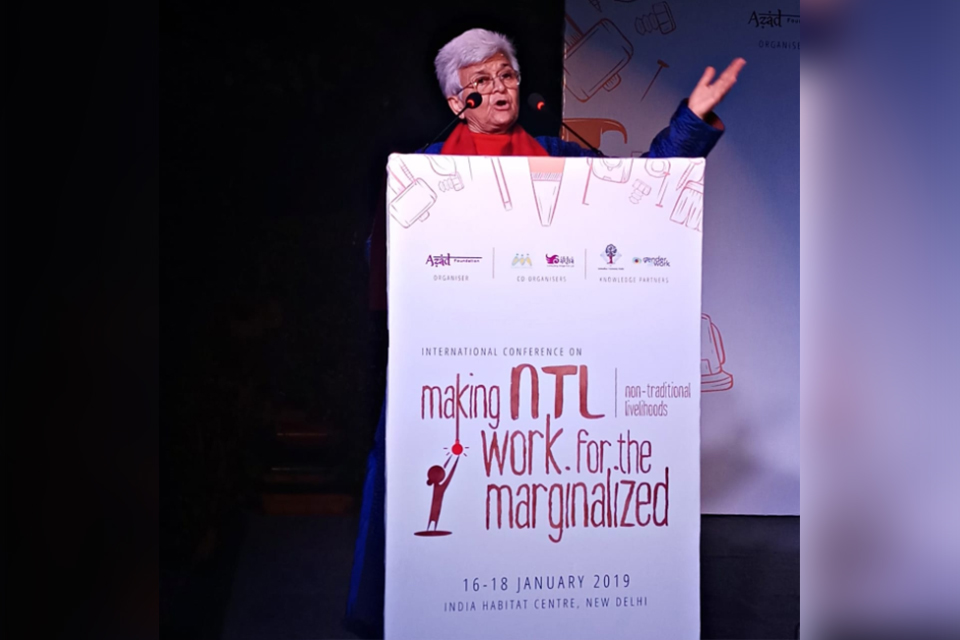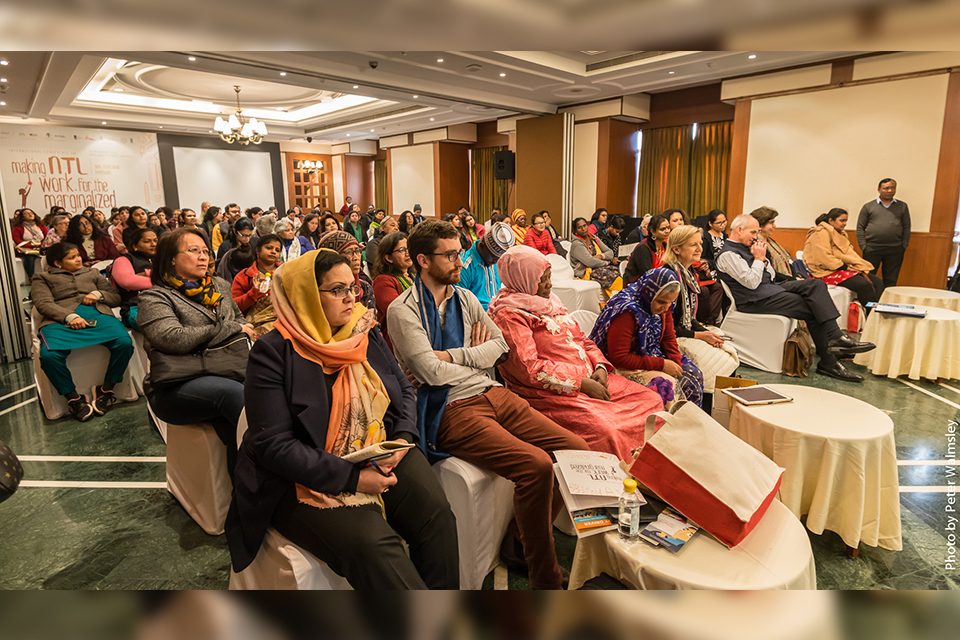International Conference for Making Non-Traditional Livelihoods Work for the Marginalized

The 2030 agenda for Sustainable Development Goals (SDGs) indicates that “development will only be sustainable if its benefits accrue equally to both women and men; and women’s rights will only become a reality if they are part of broader efforts to protect the planet and ensure that all people can live with dignity and respect” .The SDG’s envision gender equality as a key cornerstone, the force that will ensure the promise of ‘leaving no one behind’.
However, in a situation of rising inequality, existing structural barriers, gender disparities in education and gendered labour markets worldwide, women’s participation in the workforce is limited to a very narrow set of jobs, which are often low-skilled. Being in low skilled jobs limits their opportunities for future training or upskilling to meet the demands of digitization and automation, putting them at a high risk of unemployment in the changing labour market conditions. Further, the stagnation of jobs, declining economic and wage growth also negatively impact women’s job prospects as they lack the relevant technical skills and exposure to modern information and communication technology (ICT) to get decent employment. Women’s productive potential continues to be underutilized due to the entrenched inequality against women and the prevalence of gender-based segregations in the job market.

In the event of challenges like stagnating job market and rising unemployment levels, enabling women to access NTLs more widely, Azad understands the need to create an enabling environment at the macro-level. The International Conferencewas organised by Azad and Sakha in partnership with the NTL network from 16-18th January 2019 at India Habitat Center, New Delhi. The conference had its inauguration ceremony on the 15th January evening, presided over by the renowned social scientist, feminist, poet and author – KamlaBhasin. The conferencecreated a platform to deliberate on how to overcome existing gender disparities in learning opportunities and skills to ensure equitable technical and transferable skills (Target 4.4 of SDG 4), access to employment and decent jobs (as outlined in SDG 8). To meet these challenges, it made visible through practitioner’s voices, various non-traditional livelihoods for women such as professional driving because it constitutes a challenge to gendered notions of work and skilling, creates mobility, remunerative incomes and a sense of identity and dignity.
International Conference on ‘Making NTL work for the marginalised’ enabled a platform for advocacy around NTL and the need for an enabling ecosystem through deeper engagement with international and national stakeholders like the united nations and global civil society. The key themes of the Conference were, Women and Work participation, Why Non-traditional Livelihoods disrupt the gender norms of work, Creating an Enabling Environment and Gender sensitive Markets for sustaining women at the workplace – particularly women from diverse and marginalised contexts and Advocacy to reach the last first- Women and Work through the Lens of Sustainable Development Goals (SDG’s).The conference was attended by over 200 people including Civil society, policy makers, corporates and practitioners of NTL from 20 countries created a platform to deliberate on strategies to overcome existing gender disparities in acquiring skills and other learning opportunities so as to move towards equitable access to employment and decent jobs. The conference saw the participation from 25 practitioners of non-traditional livelihoods across 5 countries such professional drivers, women in carpentry, masonry, electrical work, trekking along with some key advocates like
- Theo Save: CEO, Africa Women’s Development Bank
- Marissa Wesely: Founder Win-win strategies
- Hope Chigudu: Co-founder of the Zimbabwe Women’s Resource Centre and Network
- Gary Barker: President and CEO, Promundo
- Jayati Ghosh: Professor of Economics at the Centre for Economic Studies and Planning, School of Social Sciences, Jawaharlal Nehru University
- Wenny Kusuma: Country representative, UN Women Nepal
- Ms Francine Pickup : UNDP country director India
- Dr Susan Moir: Research Director, Policy Group on Tradeswomen’s Issues
- Gavin McGillivray: Head, DFID India
Some of the key issues which emerged from the conference were related to the access to skilling opportunities and jobs for women, providing counselling support to women to negotiate with their families the support required to pursue livelihoods of their choice. It was also emphasized that the governments need to invest substantially in contextual skills training for women and formalize skills training curriculums. One of the very important points of advocacy was to have learning and work environments which are free of sexual harassment, discrimination and social prejudices and put in place social protection policies and conducive social infrastructure that can ensure women workers both in the formal and informal sectors, a life of dignity. Azad aims to draw from the learnings of this conference to engage with the macro policy environment that impacts how resource poor women relate with the world of work. These include the upcoming CSW, in March 2019, review of SDGs 4 and 8 at the High Level Political Forum in July 2019 as well as strengthening advocacy efforts of the NTL network.







